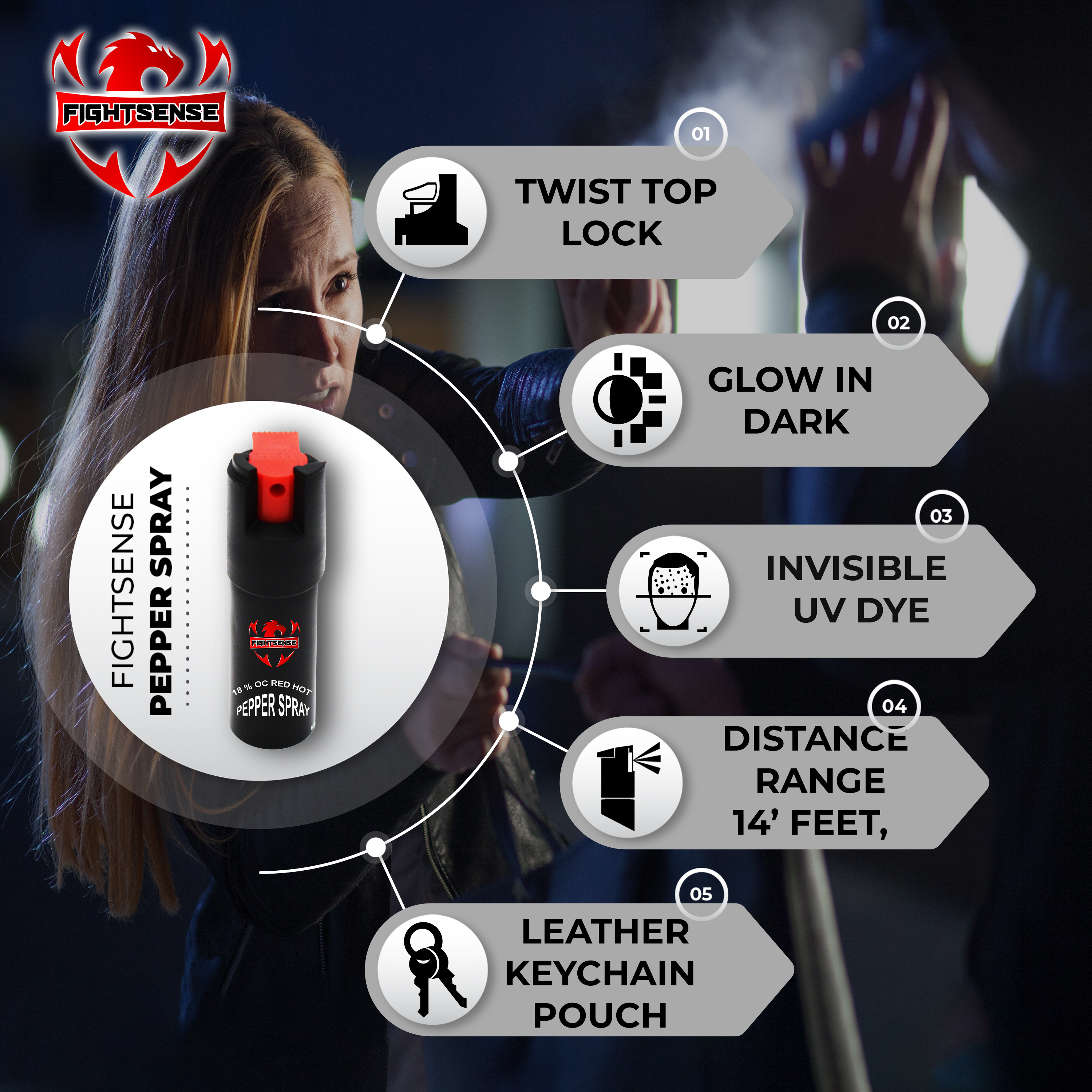Will Pepper Spray Stop a Dog? Effective and Ethical Use Guide
15th Aug 2024
In an increasingly urbanized world, encounters with aggressive dogs are not uncommon. Whether you're jogging through a neighborhood, walking in the park, or simply minding your own business, the possibility of an aggressive dog approaching you is a real concern.
Many people carry pepper spray for self-defense, but can it be effective in stopping a dog? This blog delves into the effectiveness of pepper spray on dogs, ethical considerations, and legal implications.
Key Points
What is Pepper Spray?

How Does Pepper Spray Affect Dogs?
When a dog is sprayed with pepper spray, it experiences similar effects to humans. The capsaicin in the spray causes intense burning in the eyes, nose, and throat, leading to temporary blindness, coughing, and disorientation. These symptoms are usually enough to stop a dog in its tracks, making pepper spray an effective deterrent in many cases.
However, pepper spray is only sometimes 100% effective. Dogs have varying pain thresholds, and some, especially those in a heightened state of aggression or those trained for attack, might not be as easily deterred by the spray. Additionally, factors like wind direction, the accuracy of the spray, and the distance between you and the dog can influence its effectiveness.
When to Use Pepper Spray on Dogs
Using pepper spray on a dog should be a last resort. While it can stop an attack, it's important to exhaust other non-violent methods first. If you encounter an aggressive dog, try the following steps before resorting to pepper spray:
- Stay Calm: Dogs can sense fear and aggression. Avoid sudden movements and keep your hands at your sides.
- Avoid Eye Contact: Direct eye contact can be seen as a challenge by dogs.
- Back Away Slowly: If the dog is not charging at you, slowly back away, keeping the dog in your peripheral vision.
- Use a Deterrent: If you have a whistle, loud noise-maker, or even a treat, use it to distract the dog.
Pepper spray should only be used if the dog is actively attacking or you feel your safety is in immediate danger. In such situations, aim for the dog’s face, specifically the eyes and nose, to maximize the spray's effectiveness.
Ethical Considerations
The use of pepper spray on dogs is a controversial topic. While it can be effective in stopping an attack, it also raises ethical concerns.
The welfare of the dog should be considered. Pepper spray causes significant pain and discomfort, and while the effects are temporary, the experience can be traumatic for the animal. Animal advocates argue that using such force on an animal, especially a pet, should be avoided unless absolutely necessary.
Moreover, it's important to consider why the dog is acting aggressively. In many cases, aggressive behavior in dogs is a result of fear, pain, or poor training. Pepper spray may stop an immediate threat, but it does not address the underlying issue, and its use may exacerbate the dog’s fear and aggression in the long term.
Legal Considerations
The legality of using pepper spray on animals varies by location. In some places, using pepper spray on a dog, particularly a pet, could lead to legal consequences, including fines or charges of animal cruelty.
It is essential to be aware of local laws and regulations regarding the use of pepper spray on animals. Before carrying pepper spray as a deterrent against dogs, familiarize yourself with the legal landscape in your area. Additionally, improper use of pepper spray, such as spraying a non-threatening dog, could result in legal repercussions and public backlash.
Conclusion
In conclusion, pepper spray can be an effective tool for deterring aggressive dogs, but it is not a one-size-fits-all solution. It should only be used as a last resort, and users must be aware of its limitations, ethical implications, and legal considerations.
Pepper spray can temporarily stop an aggressive dog, but it is not always 100% effective. Ethical concerns about the welfare of the dog and legal restrictions further complicate its use. Therefore, it is crucial to be informed, and prepared, and to consider alternative methods of deterring dogs whenever possible.
Being prepared and educated about handling aggressive dogs can make a significant difference in ensuring both your safety and the well-being of the animals you encounter.
FAQs
Will Pepper Spray Stop a Dog?
Yes, pepper spray can temporarily incapacitate an aggressive dog by causing irritation to the eyes, nose, and skin, effectively stopping the attack without causing long-term harm if used properly.
Can Pepper Spray kill a dog?
No, Protector Dog Spray contains 1.0% Major Capsaicinoids, a concentration approved by the EPA for humane use, ensuring it will not be lethal to dogs.
Is It Legal to Use Pepper Spray on a Dog?
Pepper spray for dogs is legal to carry in all 50 states for individuals aged 18 and older. However, it's important to check local regulations as they may vary. The spray should not be used as a training tool or by anyone who might misuse it to harm animals. Animal cruelty laws are in place across the U.S. to prevent such abuse.
How Effective Is Pepper Spray on Dogs?
Pepper spray is highly effective as a humane, short-term solution to deter aggressive dogs and ensure safety.

